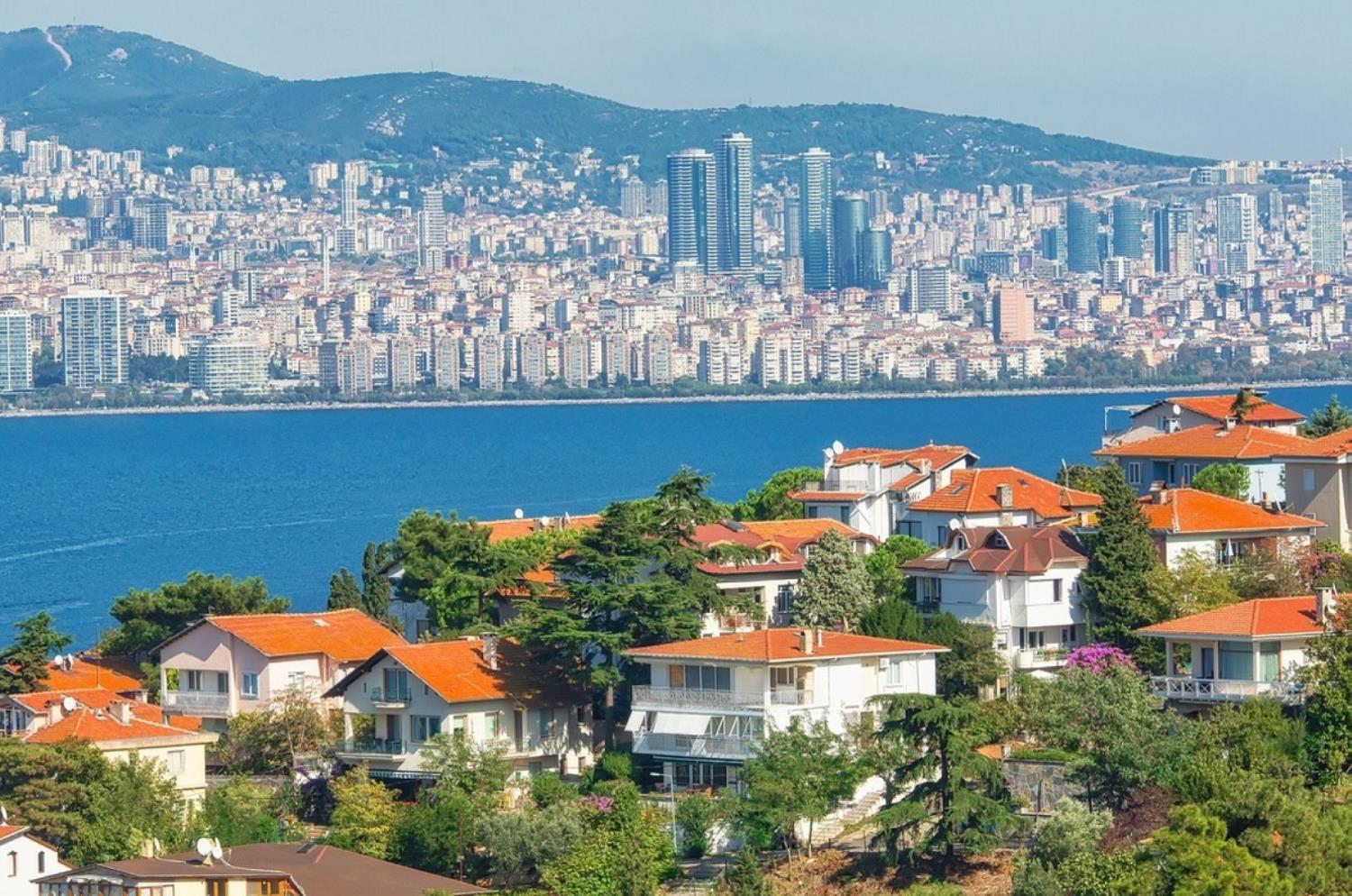INVESTING IN TURKEY AS A FOREIGNER- THE TURKISH CENTURY AND OPPORTUNITIES

INVESTING IN TURKEY AS A FOREIGNER- THE TURKISH CENTURY AND OPPORTUNITIES
A.Introduction:
Today's economic structure opens the doors of a rapidly developing and globalised world full of unique opportunities for investors. These opportunities, offer a diversity for investors and have the potential to offer significant returns when evaluated with the right strategy. However, for a successful and profitable investment, the potential, stability and future vision of the country to be chosen are of great importance. Therefore, investment should be made at the right time and in the right place. One of the countries that stands out is Turkey and the increasing potential of investments and returns there.
In the light of the "Century of Turkey" concept, Turkey wants to realise its potential by providing more influence and leadership at the regional and global level, as well as developing solutions to its domestic disadvantages. In this context, it has created and continues to create different projects, investments and innovations in every field. Factors such as Turkey's geographical location, population, economic potential and cultural richness provide important advantages to position Turkey in the world arena.
In this article, we will explain why it is profitable to invest in Turkey in the 21st century and in which areas investments can be made.
B.Why investing in Turkey is profitable?
1. Geographical location
Turkey is located at a strategic crossing point between Europe and Asia. In addition, Turkey has a long coastline and important waterways connecting the seas such as the Bosphorus and the Dardanelles. Turkey's role as a bridge between the continents will become even more prominent with the realisation of the "Belt and Road Initiative" which constitutes the backbone of the trade route from China to Europe. What gives Turkey these qualities is, of course, not only the fact that it is located between two continents, but also the fact that it continues to develop its transport infrastructure day by day by signing giant projects. Turkey has a wide network in terms of air, land, sea and railway transport. All this makes Turkey a commercial and logistics hub, providing easily accessible international business opportunities, fast supply chain and low transportation costs.
2.Turkey's unique climate
Turkey's rich and diverse climate makes it highly rational to invest in agriculture, animal husbandry and energy production. Analyses based on climate data reveal that a wide range of agricultural products can be grown in different geographical regions of the country. For example, it is observed that products such as olives, citrus fruits and grapes can be grown with high quality in the Mediterranean climate regions of Turkey. At the same time, there is potential for the production of cereals such as wheat and barley in the inland areas. In the livestock sector, Turkey's large pastures and grazing areas offer favourable conditions for feeding animals such as cattle, sheep and goats. The number of sunny days and wind potential of the country create a very favourable ground for renewable energy projects, while scientific data point to a positive picture in terms of sustainability of energy production. Turkey's climatic conditions, farmland and pastures provide a solid basis for investments in agriculture and energy sectors.
3.Quality and Quantity of Turkey's Population
With more than 80 million citizens, Turkey is both one of the most populous and youngest and most dynamic populations in Europe. When the number of foreigners coming to Turkey for tourism and work is added to this, the figure reaches more than 100 million according to official data. Such a society, which is open to consumption both in terms of number and quality, has a high demand from the market. This naturally makes Turkey a big market for potential investments.
Turkey attracts attention with its young population as well as its large, highly qualified labour force potential. The country's many higher education institutions and vocational training centres ensure the continuous development of a qualified workforce. This situation significantly increases the production capacity and growth rate in various sectors such as automotive, textile, food, construction, energy, health, etc. and reduces production costs. These favourable factors increase the importance of Turkey in the eyes of foreign investors.
4.Economic Reforms and Investment Incentives:
Turkey has become an attractive country for foreign investors by implementing a series of economic reforms and investment incentive policies in recent years. The country has undertaken significant regulatory reforms to improve the business environment and steps have been taken to provide a faster and more efficient business process for investors, such as reducing bureaucracy and simplifying the process of making investments and establishing companies. At the same time, significant measures have been taken in creating transparency of legal regulations and protection of investor rights.
In addition, Turkey has introduced a number of investment incentives to attract foreign investors. These incentives include VAT exemptions, tax reductions, customs duty exemptions, social security premium support, income tax withholding tax reduction, interest rate support, land allocation, VAT refund, R&D incentive and financing support. These incentives vary according to the investment amount of the investor, the sector in which the investment is made and the region where the investment is made.
C.Incentives Granted to Foreign Investors in Turkey
As mentioned above, Turkey offers many incentives to foreign investors. These incentives and the regions where they are valid are regulated within the legislation consisting of the Law No. 474 on the Subsidies of Investments, the Council of Ministers Decree No. 2012/3305, the Communiqué on State Aids in Investments and the Regulation on the Application Procedures and Principles of Investment Incentive Certificate. The incentive system in Turkey consists of 4 different types of incentives applied in different combinations in 6 different investment regions. These incentives are classified as general investment incentive schemes, regional investment incentive schemes, large-scale investment incentive schemes and strategic investment incentive schemes.
1.General
Pursuant to Article 12 of the relevant decision, which regulates the general investment incentive practices; regardless of the region where the investment will be made, domestic and foreigners who invest 1 million TL or 500.000 TL do not pay the value added tax of 18% for the machinery and equipment they procure, regardless of where they are supplied. Customs duty is also not paid even if this procurement is made from abroad.
2.Regional
Turkey is divided into 6 different regions according to socio-economic development levels. These regions are named as Region I (Most Developed Regions), Region II (Regions with Medium Development Level), Region III (Less Developed Regions), Region IV (Very Less Developed Regions), Region V (Eastern Black Sea Region) and Region VI (Eastern and Southeastern Anatolia Region). Regional Investment Incentives are provided to encourage investors to invest in less developed regions of Turkey and to support economic development in these regions. These incentives include VAT exemption, customs duty exemption, allocation of investment space, loan interest support and other tax reductions. The incentives given for the regions increase from Region 1 to Region 6.
3.Large-scale
Large-scale investment incentives are provided to investors who want to invest in Turkey and whose investment size is 100 million TL or more. These incentives are provided to encourage investors to finance their investments more easily, create more employment and generate higher added value. These incentives are of the same type as the types of incentives in the Regional Investment incentive scheme and again vary according to the investment region. For example, while the investment contribution rate in the 1st Region is 10% on the basis of regional incentive practices, it is 20% on the basis of large-scale investment. As can be seen, large-scale investment incentives are an important opportunity for investors who want to invest in Turkey.
4.Strategic
Strategic investment incentives are incentives provided to investors who wish to invest in Turkey and whose investments are deemed to be of strategic importance. Strategic investment incentives are determined according to the strategic importance of the investment, the size of the investment and the region where the investment is made. Strategic investment conditions are a set of criteria determined by the Ministry of Economy and updated from time to time. Investors must fulfil these criteria in order to have their investments recognised as strategic investments. These criteria are as follows:
a) The minimum fixed investment amount is above fifty million Turkish Liras.
b) The total domestic production capacity of the product subject to investment is less than imports.
c) Within the framework of the principles to be determined by the Ministry, the added value to be provided by the investment subject to the certificate must be at least forty per cent. This condition is not required for refinery and petrochemical investments.
ç) The total import amount realised in the last year in relation to the product subject to investment is over fifty million US Dollars.
When the relevant commission approves that the project meets the criteria, it shall issue an incentive certificate for the project. These projects can benefit from customs duty exemption, VAT exemption, tax deduction, tax reduction, insurance premium employer's share support, investment location allocation, interest support, VAT refund, as well as income tax withholding support and insurance premium support, provided that they are located in the 6th region, regardless of the regional difference.
D.Areas for investment in the Turkish century
1.Infrastructure and transport projects:
Within the scope of the "Turkish Century", Turkey needs to make significant investments in infrastructure and transport. In this context, Turkey, which has signed major projects such as "Istanbul Airport" and "Osman Gazi Bridge", is currently preparing for much larger projects such as Canal Istanbul. This is indicative of the fact that investments in such fields continue to increase, contributing to the future potential of the country. During the construction phase of such large-scale projects, subcontractors, contractors, architects, engineers, other construction industry professionals, construction materials and equipment suppliers are also needed. In addition, large-scale infrastructure projects are often complex and long-term endeavours. Firms specialised in the planning, financing, management and consultancy of these projects are in demand. The potential for investments to be made in Turkey to fulfil all these needs is quite high and profitable, as the sector is developing and offers long-term business opportunities.
2.Green and Renewable Energy Sources
The need for energy has been one of the biggest problems in countries for centuries. For many years, energy needs have been met by fossil fuels, but factors such as environmental problems, energy security and public health have led to policies expanding the use of green energy sources worldwide, especially in Europe. With international agreements such as the Paris Agreement, many countries, including Turkey, have made commitments to the use of green energy.
Of course, renewable energy sources are the pioneers of green energy resources projects. These are one of the major issues that constitute the goals of the "Turkish Century". In this context, it is possible and quite logical to make a different energy investment in every region of Turkey. In particular, the Southeastern Anatolia Region is an ideal investment area for solar power plants, while the Marmara, Aegean and Mediterranean regions are ideal investment areas for wind power plants. In addition to these, the country is very suitable for establishing facilities and investing in areas such as sea wave and tidal energy as it is surrounded by seas on three sides, as well as hydroelectric and geothermal energy as Turkey is also rich in terms of inland waters. Turkey has held many open tenders for energy projects through programmes such as "YEKA" and "YGEP" and continues to support such investments through different programmes.
3.Turkish Defence Industry:
Turkey has made great progress in the defence industry in recent years and has become an internationally respected country in this regard. For foreign investors, Turkey's defence industry is a strategic area offering a variety of opportunities. Turkey is investing in and developing many domestic defence projects and is open to foreign technology and cooperation. By becoming partners in these projects, investors can share and contribute their technological know-how and experience, while providing prestige and profit for their companies. Turkey's defence industry products and services are also in demand abroad and have export potential. Investors may have the chance to create an international customer base by exporting Turkish defence products to world markets. In short, the Turkish defence industry is an inevitable area of investment growth, but it should not be forgotten that foreign investors investing in the Turkish defence industry are subject to certain restrictions and permits as required by the Turkish Defence Industry Presidency.
4.Agriculture and Food Processing:
The food crisis, which started to emerge due to the high population, inadequate food production and disruptions in supply chains around the world, has become even more palpable with the impact of the Covid-19 Pandemic and the subsequent Russian-Ukrainian War. In this scenario, Turkey, with the motto of "the century of productivity", aims to ensure the uninterrupted continuation of all activities that are vital for its citizens and, when necessary, for the world, regardless of the conditions. Agriculture is an inevitable sector in this regard.
Turkey has great potential in agriculture and food processing. It is one of the largest agricultural producers in Europe and one of the leading agricultural producers in the world. For foreign investors, Turkey's agriculture and food processing sector is an unopened treasure trove. As a matter of fact, although Turkey has a high production and export percentage in the field of agriculture and food, it is still far from its potential.
Turkey has a variety of climate and soil types, enabling the cultivation of different agricultural products. Foreign investors wishing to invest in this field are provided with at least 4th region investment incentives regardless of the investment region. By investing in agricultural lands, production facilities, value-added food products processing factories, foreign investors can seize great opportunities both in the highly populated domestic market and in the markets of countries that already import from Turkey. In addition, a competitive entry into the world market can be made by combining recently developed high agricultural technologies with Turkey's climatic and geographical advantages that allow for off-season production.
5.Tourism and hotel management
Turkey is a country with a rich cultural heritage, natural beauty and historical riches that goes from strength to the strength in the tourism and hospitality sectors Considering that almost 10 per cent of Turkey's income comes from the tourism sector, the size of the tourism sector in Turkey can be estimated as follows: while the number of tourists visiting Turkey was 28.6 million in 2010, it is estimated to be between 55-57 million in 2023. Turkey, which has the potential to operate in all areas of tourism such as culture, history, entertainment, sports, nature and health, continues its growth in tourism with its entertainment centres, thermal facilities, local and global art festivals along with a variety of accommodation facilities suitable for all budgets up to 18 thousand liras/dollars?. For this reason, the German hotel chain TUI, Anex Tour Company, Qatari Diar and many other tourism companies are already making serious investments in Turkey in the field of hotel management. In addition, foreign investors will find ideal investment opportunities in a wide range of fields such as entertainment and theme parks management, touristic trip programming, festival and event organisation.
E.Conclusion:
Under the concept of the "Turkish Century", it is clear that Turkey is a highly attractive country for investors. Its strategic geographical location, young and qualified population, economic reforms and investment incentives, growth potential in various sectors such as high technology, agriculture and food processing, tourism and hospitality, offer various opportunities for foreign investors. While Turkey continues to rise to a central position in global trade with its infrastructure and transportation projects, it offers solutions for future energy demand in the field of green and renewable energy resources. At the same time, potential investments in sectors such as defence industry, agriculture and food processing, tourism and hotel management contribute significantly to the economic and social development of the country. By taking advantage of the opportunities offered by Turkey, foreign investors can contribute to the country's rising economy and promising sectors. With the right strategies and cooperation, Turkey will continue to offer a long-term, successful and secure investment environment.

